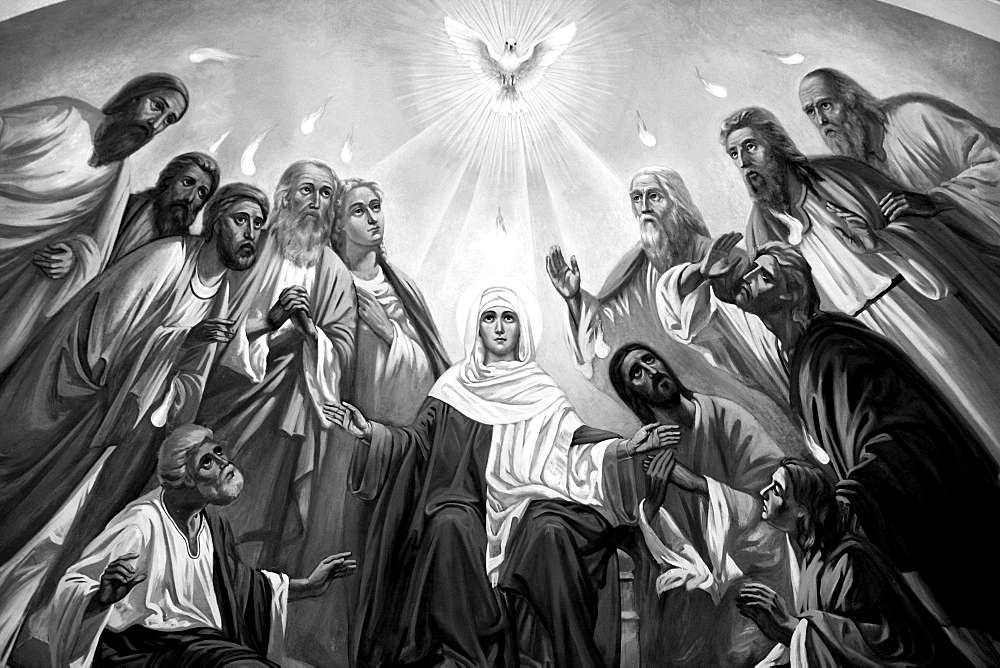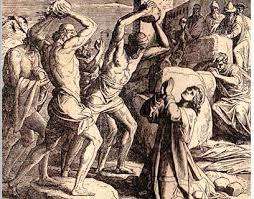

Christ's Servanthood as Model for Our Stewardship
Dr. Shaibu Abraham
The New Testament portrays Christian life as a life of deep commitment that brings glory to God. This entails a life-style that is totally surrendered to Christ, having his mind and character, living the life of a steward. We are called to be faithful stewards to serve God in this world. As individuals and as community, we are called to participate in God's mission by fulfilling the task assigned to us.
A steward is a person who performs certain duties and tasks in the absence of an owner and therefore, the steward is supposed to give full account of his actions. Now the question is, what were the important ideals Jesus endorsed to be found in a steward? How should one carry out the given task to be a faithful steward? In answering these questions, Jesus introduced two important aspects to his followers; one, discipleship and second, servanthood. However, these were not mere theoretical concepts in the teachings of Jesus; instead Jesus lived his life and acted these concepts in his life and ministry.
Jesus Christ: The Paradigm of Servanthood
The idea of Jesus as a servant leader is one of the most important themes that is embedded in the New Testament, especially in the Gospels. Incarnation is seen and explained as God becoming a human, taking the form of a bond-slave, the lowest form of human existence in the Greco-Roman context. For instance, Apostle Paul summarises the incarnation in a beautiful poem, explicating the life of servanthood lived by Jesus, while exhorting the Philippians believers to serve one another: "Have this attitude in yourselves which was also in Christ Jesus, who, although He existed in the form of God, did not regard equality with God a thing to be grasped, but emptied Himself, taking the form of a bond-servant, and being made in the likeness of men. Being found in appearance as a man, He humbled Himself by becoming obedient to the point of death, even death on a cross" (Philippians 2:5-8). In order to bring the Philippians believers toward the mindset of Jesus Christ, here Paul presents Christ's life as a model, graphically portraying Christ's incarnation and crucifixion. Instead of "empty glory", Christ "emptied himself"; instead of "selfish ambition," he took "the form of a slave"; he did not consider his equality with God selfishly, as a human being he humbled himself and all of this to God's glory over against the "empty glory" of selfish ambition. Christ entered our history not as kyrios (Lord), but as doulos (slave), a person without advantages, rights or privileges, but in servanthood to all.
Apostle Paul, in another instance, portrayed Jesus' existence on earth as a poor and lowly man to encourage the believers to help their fellow believers. "For you know the grace of our Lord Jesus Christ that though He was rich, yet for your sake He became poor, so that you through His poverty might become rich" (2 Corinthians 8:9). He was rich in the ineffable glory of the divine attributes, and these he renounced and became an ordinary person in incarnation, and took our nature in all its poverty. He was in the perfections of his divine nature, having the fullness of the Godhead in him, equal to the Father. He possessed all the heavenly privileges and divine attributes such as eternity, immutability, infinity and immensity, omnipresence, omniscience, omnipotence but for us assumed human nature with all its weaknesses and imperfections. He appeared not as a lord, but in the form of a servant; he endured a great deal of reproach and shame, and at last death itself. Not that by becoming man he ceased to be God, or lost his divine perfections, but in his human nature he became the reverse of what he is in his divine nature, namely, finite and weak and infirm, ignorant of some things, and mortal; exposed to much meanness and outward poverty; he was born of poor parents, had no place to lay his head, was ministered to by others of their substance.
Similarly, the Gospels portray Christ’s life and death on the cross as the supreme example of his commitment to be a servant. There are several passages within the Gospels that define the servant role of Jesus and his identification with the ordinary masses of his time. In the genealogy of Jesus, according to Matthew 1:1-17, the names of some of the women like Tamar and Rahab would startle and shock us; they were considered to be untouchable and impure in the eyes of the Jews. They were scandalised and reproached in their contemporary society. In his birth he was in a deprived condition, in a cattle shed, away from comfort, far from human comfort. Jesus was also referred to as a "carpenter's son". That sounds like looking down upon his father's profession.
Another aspect of Jesus' servanthood is the fact that he preferred to use the title "Son of Man". Even though it is used in different ways, the title is used to portray his lowly state, suffering and death. "It is written of the Son of man that he should suffer many things and treated with contempt" (Mark 9:12); The "Son of Man" sayings of Jesus precisely demonstrate the lowly nature of Jesus. Jesus encountered rejection, mockery and contempt, suffering and, finally, death. All this suffering originated from the dominant religious tradition of his time. He underwent these experiences as a servant. He totally identified with the ordinary people of his day. Again and again, Jesus was accused of eating and drinking with publicans, tax collectors and sinners of his day (Mark 2:15-16). Moreover, his visit to Samaritan villages and cities is a good example of his attitude towards the rejected of his day. Thus, the incarnated Christ became the epitome of servanthood.
Jesus Christ: The Paradigm of Stewardship
Jesus as a historical figure lived among us as the incarnation of God, showing the true nature of God as well as human being. Within the Christian theology and tradition, two things have consistently been said about of Jesus: he was “true God” and “true man”, the incarnation of the truly divine and the truly human. As “true God,” even during his historical life, Jesus fully surrendered his life to fulfil his heavenly Father's will (John 4:34). He spoke what his Father commanded to speak and did the works his Father had given him to complete (John 5:36). As “true man,” he is a model for human life, specifically for the life of discipleship. This twofold status of Jesus within the tradition of Christian theology enables us to emulate him to our role model for stewardship.
Disciples of Christ as Servants and Stewards
Jesus declared that his disciples are to be like him (Matthew 10:24-25; Luke 6:40). Becoming like Jesus includes going out with the same message, ministry and compassion (Matthew 10:5-42), exercising the same servanthood (Matthew 20:26-28; Mark 10:42-45; John 13:12-17), and experiencing the same suffering (Mk 10:38-39)."Anyone who wants to be a follower of mine must renounce self; he must take up his cross and follow me", he told his disciples; "Whoever wants to save his life will lose it, but whoever loses his life for my sake and the gospel's will save it" (Mark 8:34-35). Mark 10:45 declares the essence of Jesus’ life and ministry; "For even the Son of Man did not come to be served, but to serve, and to give his life as a ransom for many". By comprehending this, the disciples will grasp the essence of discipleship as servanthood, including their motivation, position, ambition, expectations and example. The disciple who is privileged to be a member of Jesus’ kingdom is a servant, which means thinking God’s thoughts, pursuing the life of the cross through the message and example of Jesus, and thus rejecting status, exclusivism and the treasures of this world.
To be a disciple of Jesus meant something more than being a student of a teacher. To be a disciple meant to be a faithful steward."Whoever would be my disciple", Jesus said, “Let him follow me.” What does it mean to be a follower of Jesus? It means to take seriously what he took seriously, to be like him in every sense. It is what Paul meant when he said, “Be imitators of Christ”. What Jesus was like as a figure of history becomes a model for discipleship, illuminating and incarnating the vision of life to which he called his followers.
For Jesus, discipleship was not simply an academic or religious program. Discipleship was a way of life that began in relationship with him as master and moved into all areas of the experience. In Jesus’ lifetime the call to be a disciple meant counting the cost of allegiance to him. The Twelve were called to leave all, including family, profession and property, and follow Jesus in his itinerant ministry. This was their training time for their future role in the early church (Matthew 19:23-30).
Jesus taught the importance of good stewardship of the whole of our life. We are answerable to God for how we live, the priorities, values and choices we make, for our attitudes, and for how we use our talents and possessions. Christian stewardship is exercised in trying to put into practice Jesus' teaching and attitudes: servanthood, humility and faithfulness.


















